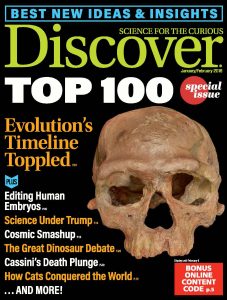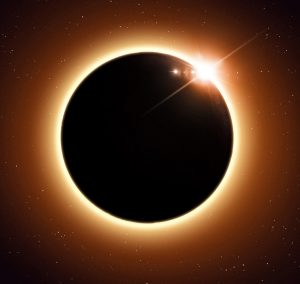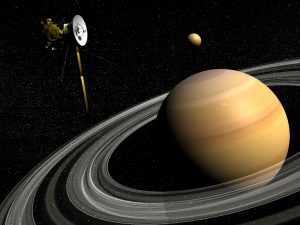 It's been a fascinating year in science. From archaeological finds and medical breakthroughs to space exploration and a historical hurricane season, all are chronicled in Discover magazine's January/February issue focused on the "Top 100 Best New Ideas & Insights." You can find a hard copy of the magazine at several of our branches (Bush, Covington, Folsom, Lacombe, Lee Road, Madisonville, Mandeville, or Slidell) or an electronic version through RB Digital, opens a new window.
It's been a fascinating year in science. From archaeological finds and medical breakthroughs to space exploration and a historical hurricane season, all are chronicled in Discover magazine's January/February issue focused on the "Top 100 Best New Ideas & Insights." You can find a hard copy of the magazine at several of our branches (Bush, Covington, Folsom, Lacombe, Lee Road, Madisonville, Mandeville, or Slidell) or an electronic version through RB Digital, opens a new window.
Four of the top ten items featured in the magazine deal with astronomy:

- The Summer Solar Eclipse: This summer about 154 million American adults watched the first total solar eclipse in the continental United States since 1979. Another 60 million watched electronically, which means approximately 88 percent of the adult population participated in this event. The next total solar eclipse visible in the U.S. will be on April 8, 2024, opens a new window.
- Astronomers See and Hear the Cosmos: Approximately 130 million years ago two stars crashed into each other, likely creating a black hole, a gravitational wave that spread across space, and a flash of light. That space-time distortion and the light that followed it reached Earth on August 17. It was first detected in Italy and then by the two LIGO, opens a new window observatories in the United States—one of which is located here in Livingston, LA, opens a new window.
-
Seven New Worlds Discovered: A February 2017 Nature article revealed the discovery of three possibly habitable planets circling TRAPPIST-1, opens a new window, a cool red dwarf star 40 light years away from our solar system.
- Cassini's Saturn Discoveries: The Cassini Spacecraft, opens a new window, which was launched in October 1997, ended its almost twenty year mission on September 15, 2017, when it disintegrated in Saturn's atmosphere. The planned path was orchestrated by NASA scientist who didn't want the spacecraft to contaminate Saturn's moons, which Cassini had revealed were home to oceans, water, internal energy, and nutritious chemicals—the traits necessary to make a planet habitable.
You can learn more about astronomy at your favorite St. Tammany Library Branch. Pick up one of these great recent books during your next visit to the library:




Add a comment to: Science: Year in Review with a Focus on Space